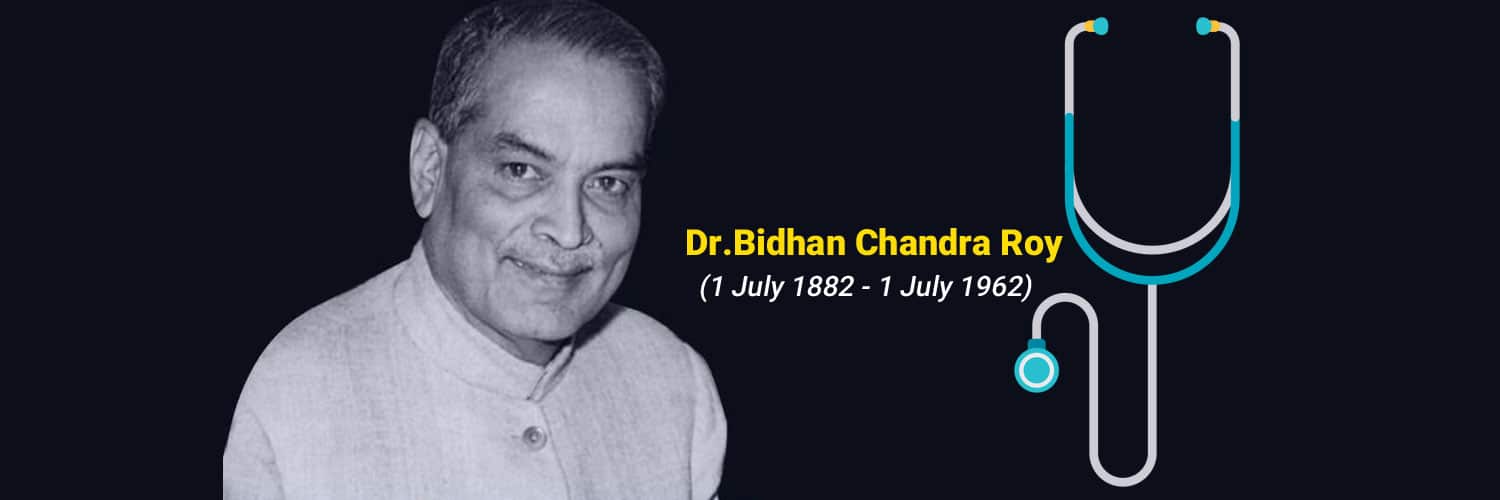Every year, India celebrates July 1 as National Doctors’ Day. It came into existence in 1991 as an attempt to express gratitude for the unparalleled contribution of Dr. Bidhan Chandra Roy. He was born on July 1, 1882, and died on July 1, 1962. Dr. Roy was also the former Chief Minister of Bengal, and during his medical career, he brought several revolutionary reforms to the Indian healthcare system.
There is more to this legendary man’s life. His dynamic personality has many fascinating facets.

An Ambitious Medico
His perseverance and determination were unbeatable. After studying medicine at Calcutta Medical College, he wanted to pursue higher medical education at St Bartholomew in England. He sent his application as many as 29 times to secure an admission until he received the nod. His expertise as a doctor was exemplary.
Did you know that he was Mahatma Gandhi’s personal physician?
Versatility
Besides being an outstanding physician, Dr. Bidhan Chandra was also an educationist, a social worker, a philanthropist, a freedom fighter, and a politician.
His versatility was proven even as an ace journalist. He edited several leading journals started by Chittaranjan Das. Dr. Roy was the founding chairman of the United Press of India. As the Calcutta mayor, he developed free education and free medical aid and bettered the city’s civic amenities.
Also, read: The Inspiring Story Of Karnataka’s First Trans-Woman Doctor: Trinetra Haldar Gummaraju
A Stalwart in Politics
His political career included 14 long years as the chief minister of West Bengal (1948 – 1962). After resisting his strong will to enter politics for two decades, in 1925, he debuted in this field. A significant reason was the Bengal partition which disrupted many students’ lives as they chose to become freedom fighters. Dr. Roy never favored the idea of students joining strikes and agitation. Becoming the CM of West Bengal was never his plan, and he kept denying it. Finally, he submitted to the request of Mahatma Gandhi in 1948.
Strengthening India’s Medical Infrastructure
He started his medical career in India as a faculty at the Calcutta Medical College. He was one of the pioneers to bring science-based medical care to Bengal and the rest of India. Dr. Roy was a visionary and had futuristic ideas to revolutionize the Indian medical infrastructure. He was instrumental in establishing premium medical institutions such as Jadavpur TB Hospital, Chittaranjan Seva Sadan, Kamala Nehru Memorial Hospital, Victoria Institution (College), Chittaranjan Cancer Hospital, and the Chittaranjan Seva Sadan for women and children.
Honor and Glory
Many revered him as an idol. On February 4, 1961, he was honored with the highest Indian civilian award, The Bharat Ratna. 1962 marked the institution of B.C. Roy National Award by the Medical Council of India.
It is the highest honor for a doctor in India. This prestigious award is conferred annually to eminent personalities under the categories of Statesmanship of the Highest Order in India, Medical man-cum-Statesman, Eminent Medical Person, Eminent person in Philosophy, Eminent person in Science, and Eminent person in Arts.

